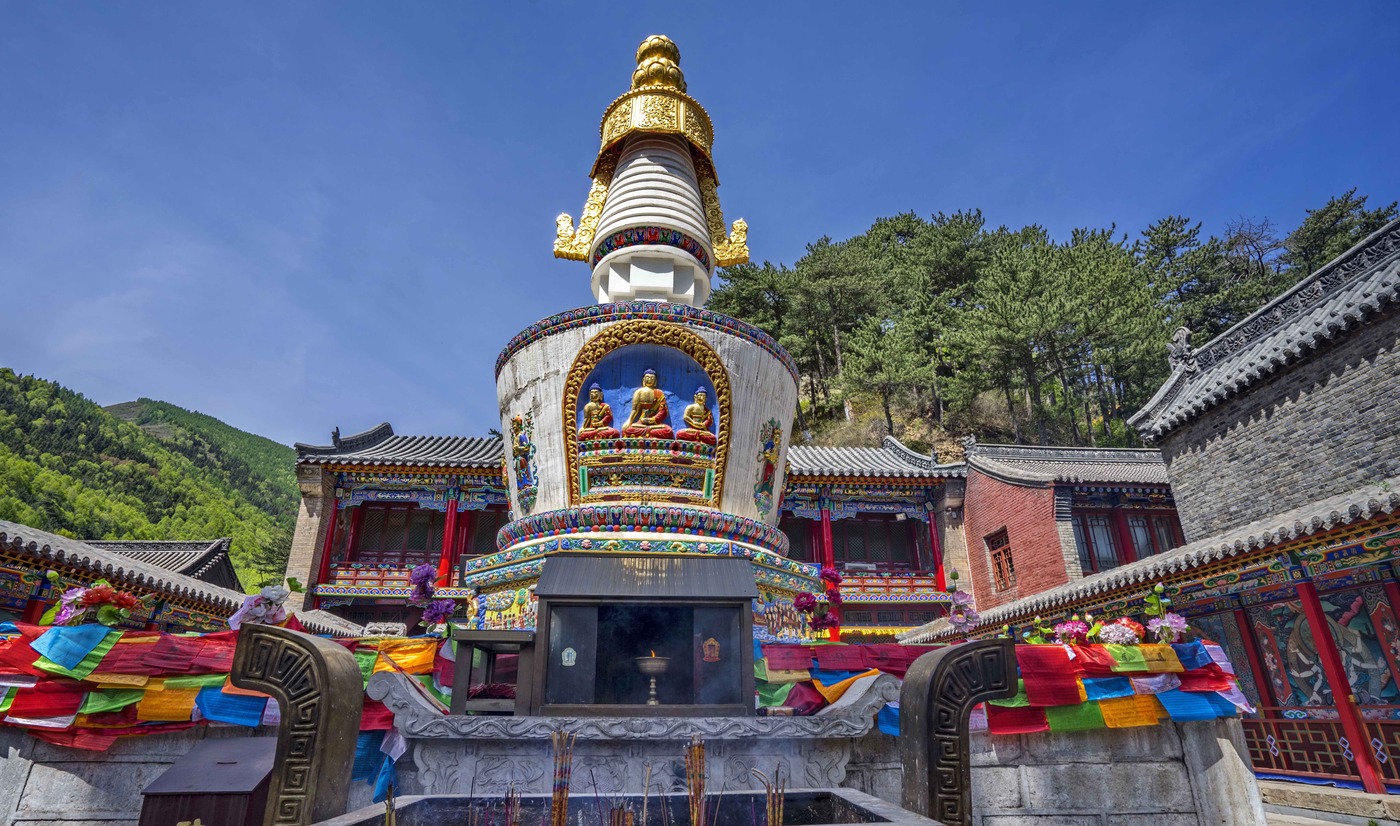Translated By Tara Lau
The Chinese designation Tianlong Babu (天龍八部) in Buddhist texts, literally, Heavenly Dragons in Eight Divisions, refers to a group of warriors and generals that protected the Dharma, often known collectively as the Eight Legions of Devas and Nagas. The term appears in many of the sutras and treatises. We will continue to talk about the remaining five legions this time.
Gandharva
Gandharvas are gods of incense who fed on scents. They were originally deities who played music in front of Sakra, Lord of the Devas. Still possessing desire, the lord had a passion for music. It is said that as soon as he lit a stick of incense, Gandharvas would start playing music upon catching its scent. According to legend, they resided in a Vajra cave at the southern end of Mount Meru and were able to fly freely in the void, hence their alternate name Apsara, or aerial celestial fairy.
Asura
In Sanskrit the word Asura usually carries three senses: non-celestial, undignified and no wine. Why non-celestial? Because Asuras had the blessings of a celestial being, but supposedly did not have their virtue. Why undignified? Because female Asuras were born to be beautiful and graceful, but the males looked ugly and lacked dignity in stature. And what about no wine? Asuras were innately natural wine drinkers. Once, not able to find any spirit to enjoy, some of them conceived a plan that would use their supernatural power to turn sea water into a pond of wine. However, because of a unique aquatic karma, they failed to distill wine out of the sea water. In a rage, all Asuras gave up drinking. Hence the appellation “no wine”. Asuras possessed a strong sense of aggression and suspicion, were combative and often fought with Sakra, Lord of the Devas.
Garuda
The Sanskrit word Garuda means a giant predatory eagle with an enormous wingspan and golden feathers. As the king of birds, it fed voraciously on dragons. Once, the Dragon God requested assistance from Buddha, who gave him a robe as protection against their attacks. And when the eagle lost its primary food source, it came to Buddha for help, too. “The World’s Blessed One has saved the dragon but ruined me. How am I to survive now?” Said Buddha in reply, “In future, when monks eat, they will chant a special mantra to provide food for you.” Thereafter, whenever monastics take a meal they recite the verse, “Great Golden-winged Bird, ghosts and deities in wilderness and Raksasa mother and son: I hereby offer nectar to you all”. In this way, they routinely support Garuda together with all lonely ghosts and the Raksasa mother and son with seven grains of rice. In order to express its gratitude, Garuda the golden-winged eagle hovered over Buddha’s head all day in his protection and served as his guardian.
Kimnara
The Sanskrit word Kimnara denotes a demigod part human, part divine. Indeed, with a human body but a single horn on its head, it did look somewhat like a human but was not entirely so, hence its epithet “questionably humanoid”. Like Gandharva, Kimnara was also Sakra’s celestial musician, with the former playing worldly music, whereas the latter making divine music.
Mahoraga
Mahoraga is in Sanskrit a creature that walks on its big belly, and more specifically, a giant serpent that moves on the side, sometimes considered an earth dragon as well. All practitioners who break precepts by vicious fawning, constant agitation or scanty provision of alms may descend into being a python deity, and yet Mahoragas were deified protectors of the Dharma.
Overall, Tianlong Babu, or the Eight Legions of Devas and Nagas, consists of Devas, Nagas, Yaksas, Gandharvas, Asuras, Garudas, Kimnaras and Mahoragas. These eight groups of divine beings all assembled under the Dharma to serve as its guardian protectors, and thus whenever Sakyamuni Buddha preached the Dharma, the celestial tutelary patrons were always purposely convened among the audiences.

